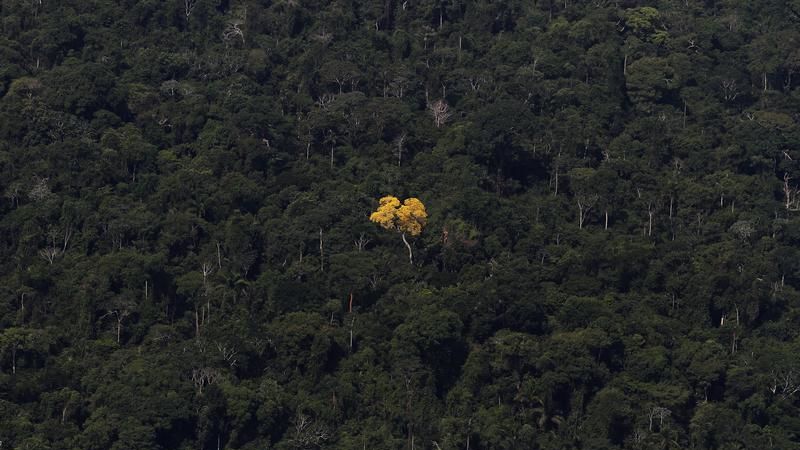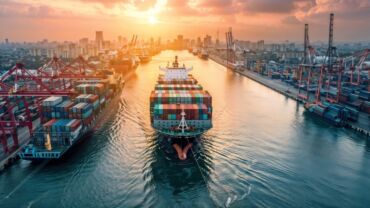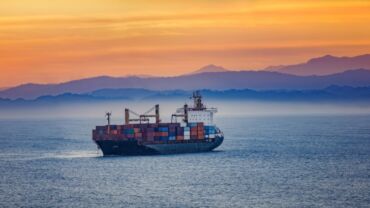New rules from the EU hope to limit the devastating impact of large-scale deforestation and hold companies accountable for how their products are made
Last December, the Members of European Parliament (MEPs) reached a preliminary deal on a new law on deforestation-free products that will make it mandatory for companies to verify and issue so-called “due diligence” statements that any goods placed on the European Union (E.U.) market have not led to deforestation and forest degradation anywhere in the world after December 31, 2020.
This means that only products that have been produced on land that has not been subject to deforestation or forest degradation after December 31, 2019 may be placed on the E.U. market or exported.
This is just one more sign of the ongoing expansion of regulations focused on risks related to environmental, social & governance (ESG) issues — in this case, those with a focus on the E. However, E is not the alone in this regulation, as respect for human rights will be considered an obligation for a product to be considered deforestation-free.
While this regulation would not ban any country or commodity specifically, companies will not be allowed to sell their products in the E.U. without this type of statement. This means that companies will also have to verify compliance with relevant legislation originating out of the country of production, including those on human rights and the rights of concerned Indigenous peoples.
Scope of legislation
The products covered by the new legislation include cattle, cocoa, coffee, palm-oil, soya, and wood, as well as products that contain, have been fed with, or have been made using these commodities (such as leather, chocolate, and furniture). The MEPs also successfully added rubber, charcoal, printed-paper products, and a number of palm oil derivatives to the list. In addition, the legislation also allows for the addition of new commodities to the list.
Additionally, all banking, investment, and insurance activities of financial institutions are required to take additional action around due diligence in the legislation. Specifically, financial services firms would only be allowed to provide financial services to customers if it concludes that there is no more than a negligible risk that the services potentially provide support directly or indirectly to activities leading to deforestation, forest degradation, or forest conversion.
This is just another global regulation that reinforces the need for companies to conduct ongoing due diligence with respect to their business partners and make every attempt to map their supply chains to the lowest tier possible.
The competent E.U. authorities will have access to relevant information provided by the companies, such as geo-location coordinates, and be able to conduct checks. They can, for example, use satellite monitoring tools and DNA analysis to check where products come from. The final text of the regulation also includes the obligation to precisely geo-locate the specific plot of land involved in the production or farming of the commodities and products in question.
The European Commission (E.C.) will classify countries, or part thereof, into low-, standard-, or high-risk categories within 18 months of this regulation going into effect. Also, the proportion of checks on operators will be performed according to the country’s risk level: 9% for high risk, 3% for standard risk, and 1% for low risk. For high-risk countries, member states would also have to check 9% of total volumes.
Penalties for non-compliance and lack of due diligence shall be proportionate and dissuasive, and the maximum amount of a fine is set for at least 4% of the total annual turnover in the E.U. of the non-compliant operator or trader. All products linked to deforestation will be required to be withdrawn from the market if they are already present in the E.U. market.
Although the final technical details of the exact wording are still being worked out, the goal is to introduce mechanisms to avoid duplication of obligations and reduce the administrative burden. The final text will also include language that small operators will be able to rely on larger operators to prepare due diligence declarations. This is another example of how the E.U. is taking smaller businesses into consideration when drafting these new requirements.
Next steps
The MEPs and Council will need to formally approve the agreement, which is anticipated. The new law will come into force 20 days after its publication in the E.U. Official Journal, but some articles will apply 18 months later.
The E.C. will step up dialogue with other big consumer countries and engage multilaterally to join efforts, so companies should monitor how these discussions proceed and to what degree these requirements could apply outside the E.U. in the future. For example, a new bill was introduced in the current U.S. Congress in November 2022 that is seen as a response to the E.U. legislation.
While this regulation would not ban any country or commodity specifically, companies will not be allowed to sell their products in the E.U. without this type of statement.
This is just another global regulation that reinforces the need for companies to conduct ongoing due diligence with respect to their business partners and make every attempt to map their supply chains to the lowest tier possible. As the first reports will likely be due to the E.C. by April 2024, putting solid due diligence practices in place now are part of a responsible sourcing strategy. Tools to certify that small suppliers of raw materials are sourced from areas that are not degrading forests no doubt will be required. Moreover, tools that allow users of raw materials in their products to monitor them on an ongoing basis is equally important to ensure compliance is maintained.
At the same time, uncertainty remains. Currently the regulation avoids a clear directive for producer-countries to require standards for human rights or to define what the term deforestation means. Without this, companies may seek to source products from jurisdictions in which relatively weak legal frameworks exist, and thus, could undermine the E.U.’s intent with the regulations.
The need for the E.U. to seek input from all stakeholders— including producer countries; local communities in producer countries; small land users that produce in-scope materials and products and mostly reside in Southeast Asia; local buyers of raw materials that sell them to small-, medium-, and large-sized companies; and multinational companies that purchase the in-scope materials — is necessary to effectively achieve the intent of the overall legislation, which is to ensure sustainable sourcing and avoid deforestation or forest degradation.







